-
 Bitcoin
Bitcoin $77,017.2292
-7.71% -
 Ethereum
Ethereum $1,544.7448
-14.68% -
 Tether USDt
Tether USDt $0.9993
-0.04% -
 XRP
XRP $1.7869
-16.16% -
 BNB
BNB $547.5351
-7.52% -
 USDC
USDC $1.0000
-0.02% -
 Solana
Solana $102.2100
-14.88% -
 TRON
TRON $0.2262
-4.37% -
 Dogecoin
Dogecoin $0.1419
-15.33% -
 Cardano
Cardano $0.5560
-14.09% -
 UNUS SED LEO
UNUS SED LEO $8.9036
-2.66% -
 Toncoin
Toncoin $2.9976
-7.75% -
 Chainlink
Chainlink $11.0093
-14.01% -
 Avalanche
Avalanche $15.9716
-8.45% -
 Stellar
Stellar $0.2125
-15.68% -
 Shiba Inu
Shiba Inu $0.0...01106
-9.78% -
 Sui
Sui $1.8752
-14.28% -
 MANTRA
MANTRA $6.0300
-3.00% -
 Hedera
Hedera $0.1354
-15.62% -
 Polkadot
Polkadot $3.5229
-10.81% -
 Dai
Dai $1.0001
0.01% -
 Bitcoin Cash
Bitcoin Cash $266.1713
-10.38% -
 Ethena USDe
Ethena USDe $0.9985
-0.06% -
 Litecoin
Litecoin $67.6901
-17.80% -
 Bitget Token
Bitget Token $3.8941
-12.68% -
 Pi
Pi $0.5573
-14.94% -
 Monero
Monero $196.6764
-8.39% -
 Hyperliquid
Hyperliquid $10.1507
-13.37% -
 Uniswap
Uniswap $5.0280
-13.84% -
 OKB
OKB $51.4835
-4.93%
How do I view my transaction history on Gemini?
To view your transaction history on Gemini, log in, click your profile icon, and select "Transaction History" for a detailed overview of your crypto activities.
Apr 06, 2025 at 10:56 am
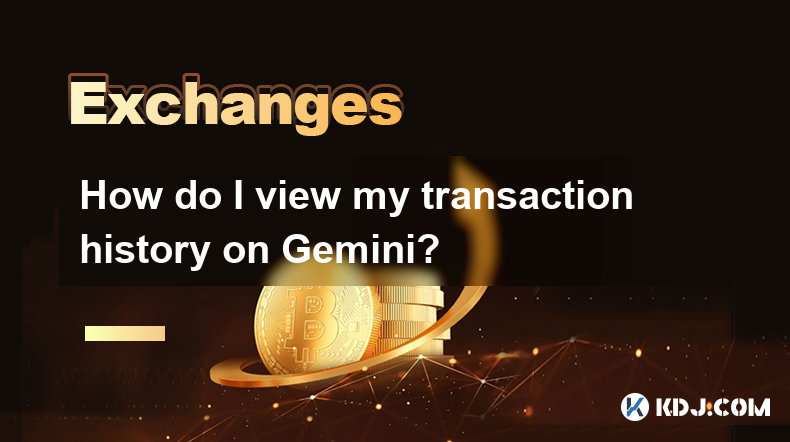
Viewing your transaction history on Gemini is a straightforward process that allows you to keep track of your cryptocurrency activities. Whether you are a seasoned trader or a beginner, understanding how to access and interpret your transaction history is crucial for managing your investments effectively. In this article, we will guide you through the steps to view your transaction history on Gemini, explain what you can expect to see, and provide tips on how to use this information to your advantage.
Accessing Your Gemini Account
To begin, you need to log into your Gemini account. If you do not have an account yet, you will need to create one by following the registration process on the Gemini website. Once you have your account set up and logged in, you can proceed to view your transaction history.
- Navigate to the Gemini website and enter your login credentials.
- Click on your profile icon located in the top right corner of the page.
- Select "Transaction History" from the dropdown menu that appears.
Understanding the Transaction History Page
Upon selecting "Transaction History," you will be directed to a page that displays a comprehensive list of all your transactions on Gemini. This page is designed to provide you with a clear and detailed overview of your trading activities.
- The transaction history page is divided into several columns, each representing different aspects of your transactions.
- Columns typically include Date, Type, Amount, Currency, and Status, among others.
- You can filter and sort the transactions by date, type, or currency to find specific information quickly.
Types of Transactions
Gemini supports various types of transactions, and understanding these can help you better manage your portfolio. Here are some common transaction types you might see in your history:
- Deposits: These are funds you have added to your Gemini account, either in cryptocurrency or fiat currency.
- Withdrawals: These are funds you have withdrawn from your Gemini account.
- Trades: These represent the buying and selling of cryptocurrencies on the Gemini exchange.
- Transfers: These are movements of funds between different accounts or wallets within Gemini.
Analyzing Your Transaction History
Your transaction history is not just a record; it's a tool that can help you analyze your trading performance and make informed decisions. Here are some ways you can use your transaction history effectively:
- Track your trading patterns: By reviewing your transaction history, you can identify trends in your trading behavior, such as frequency and types of trades.
- Monitor your gains and losses: Calculate your profits and losses by comparing the prices at which you bought and sold your cryptocurrencies.
- Identify fees: Gemini charges fees for certain transactions, and your history will show you how much you have paid in fees, helping you to manage your costs.
Exporting Your Transaction History
For more detailed analysis or for tax purposes, you might want to export your transaction history. Gemini allows you to download your transaction data in a CSV format, which can be easily imported into spreadsheet software for further analysis.
- Go to the transaction history page.
- Look for the "Export" button or a similar option, usually located at the top or bottom of the page.
- Select the date range for which you want to export the data.
- Click "Export" to download the CSV file to your computer.
Using Third-Party Tools
While Gemini provides a robust platform for viewing your transaction history, you might find it beneficial to use third-party tools for more advanced analysis. These tools can help you visualize your data, track your portfolio's performance, and even assist with tax reporting.
- Crypto tax software: Tools like CoinLedger or CryptoTrader.Tax can import your Gemini transaction history and help you calculate your tax obligations.
- Portfolio trackers: Apps like Blockfolio or Delta can sync with your Gemini account to provide real-time updates on your portfolio's value.
- Data analysis platforms: Platforms like Koinly or CoinTracking can offer detailed insights into your trading performance and help you optimize your strategies.
Security Considerations
When accessing and managing your transaction history, it's important to keep security in mind. Here are some tips to ensure your data remains safe:
- Use strong, unique passwords for your Gemini account and enable two-factor authentication (2FA) to add an extra layer of security.
- Be cautious with third-party tools: Only use reputable and well-reviewed services to avoid potential security risks.
- Regularly review your transaction history to detect any unauthorized or suspicious activities promptly.
Frequently Asked Questions
Q: Can I view my transaction history on the Gemini mobile app?
A: Yes, you can view your transaction history on the Gemini mobile app. Simply log into the app, navigate to your profile, and select "Transaction History" to access your records.
Q: How long does Gemini keep transaction history records?
A: Gemini retains transaction history records for a significant period, typically several years, to comply with regulatory requirements and to assist users with their records.
Q: Can I delete transactions from my Gemini transaction history?
A: No, you cannot delete transactions from your Gemini transaction history. The platform maintains a complete and immutable record of all transactions for transparency and compliance purposes.
Q: Is it possible to view transaction history for specific cryptocurrencies only?
A: Yes, you can filter your transaction history on Gemini to view transactions for specific cryptocurrencies. Use the filtering options on the transaction history page to narrow down your search.
Disclaimer:info@kdj.com
The information provided is not trading advice. kdj.com does not assume any responsibility for any investments made based on the information provided in this article. Cryptocurrencies are highly volatile and it is highly recommended that you invest with caution after thorough research!
If you believe that the content used on this website infringes your copyright, please contact us immediately (info@kdj.com) and we will delete it promptly.
- Cryptocurrency Market Plummets with the Start of Asian Financial Markets
- 2025-04-07 13:25:12
- Bitcoin Expands Beyond Digital Gold with OroBit's Innovative Layer 2 Protocol
- 2025-04-07 13:25:12
- International Monetary Fund (IMF) Releases Balance of Payments Manual (BPM7), Classifying Bitcoin (BTC) as an Asset
- 2025-04-07 13:20:11
- North Korea-affiliated hackers may have scaled back their operations
- 2025-04-07 13:20:11
- A third of Brits admit 'stealing Easter treats' from their children
- 2025-04-07 13:15:12
- The Shibarium Updates account on the X social media network grabbed the SHIB community's attention as it published a post that mentions Ryoshi – the mysterious Shiba Inu founder who has stepped into the unknown.
- 2025-04-07 13:15:12
Related knowledge

What are the contract margin modes of HTX?
Apr 04,2025 at 02:14pm
HTX, formerly known as Huobi, offers various contract margin modes to cater to the diverse needs of traders. Understanding these modes is crucial for effectively managing risk and maximizing potential returns. In this article, we will delve into the different contract margin modes available on HTX, explaining their features, benefits, and how to use the...
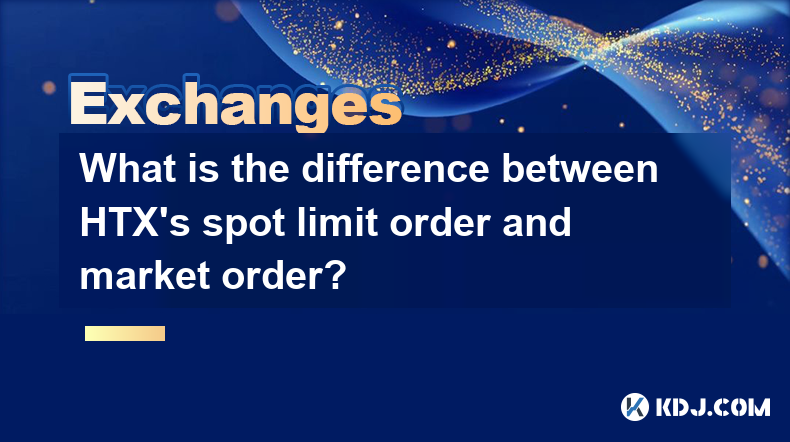
What is the difference between HTX's spot limit order and market order?
Apr 07,2025 at 01:43pm
The trading landscape within the cryptocurrency market is intricate, offering various methods to execute trades. Among the popular exchanges, HTX (formerly Huobi) provides its users with multiple order types to facilitate trading. Two of the most commonly used order types on HTX are the spot limit order and the spot market order. Understanding the nuanc...
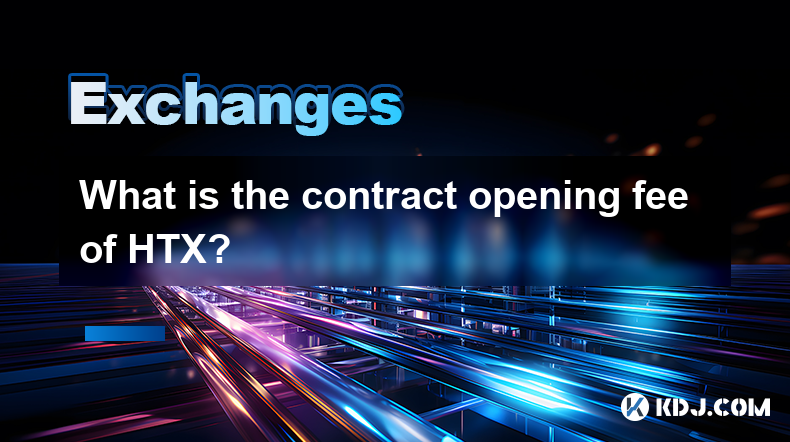
What is the contract opening fee of HTX?
Apr 05,2025 at 09:07pm
The contract opening fee on HTX, formerly known as Huobi, is a critical aspect for traders to understand before engaging in futures trading on this platform. HTX charges a contract opening fee that varies depending on the type of contract and the user's trading level. This fee is essential to consider as it directly impacts the overall cost of trading a...
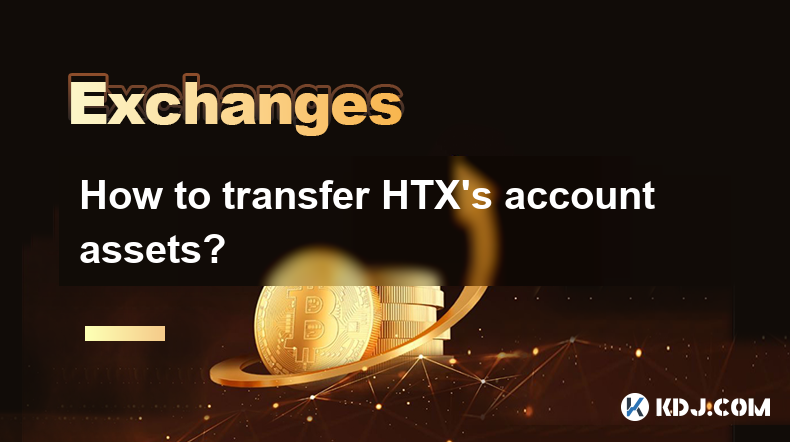
How to transfer HTX's account assets?
Apr 04,2025 at 09:28pm
Introduction to HTX and Account AssetsHTX, formerly known as Huobi, is a leading cryptocurrency exchange that offers a wide range of trading services. One of the essential functions for users is the ability to transfer assets within their HTX accounts. Whether you're moving funds between different wallets or sending assets to another user, understanding...
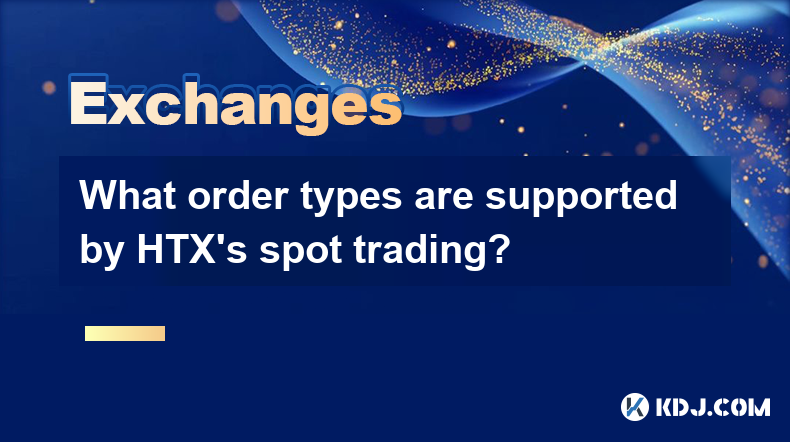
What order types are supported by HTX's spot trading?
Apr 04,2025 at 04:42am
HTX, formerly known as Huobi, is a well-established cryptocurrency exchange that offers a variety of order types for spot trading. Understanding these order types is crucial for traders looking to execute their strategies effectively. In this article, we will explore the different order types supported by HTX's spot trading platform, providing detailed ...
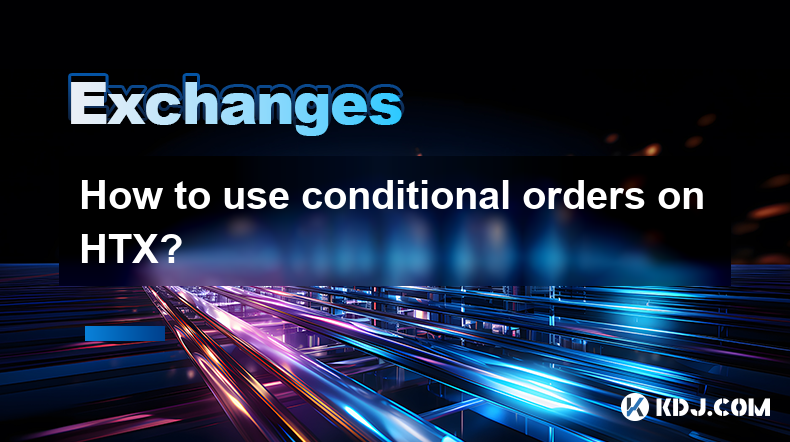
How to use conditional orders on HTX?
Apr 06,2025 at 04:35am
Understanding Conditional Orders on HTXConditional orders on HTX are a powerful tool for traders looking to automate their trading strategies. These orders allow you to set specific conditions under which a trade will be executed, without needing to monitor the market constantly. This can be particularly useful in volatile markets where quick reactions ...

What are the contract margin modes of HTX?
Apr 04,2025 at 02:14pm
HTX, formerly known as Huobi, offers various contract margin modes to cater to the diverse needs of traders. Understanding these modes is crucial for effectively managing risk and maximizing potential returns. In this article, we will delve into the different contract margin modes available on HTX, explaining their features, benefits, and how to use the...

What is the difference between HTX's spot limit order and market order?
Apr 07,2025 at 01:43pm
The trading landscape within the cryptocurrency market is intricate, offering various methods to execute trades. Among the popular exchanges, HTX (formerly Huobi) provides its users with multiple order types to facilitate trading. Two of the most commonly used order types on HTX are the spot limit order and the spot market order. Understanding the nuanc...

What is the contract opening fee of HTX?
Apr 05,2025 at 09:07pm
The contract opening fee on HTX, formerly known as Huobi, is a critical aspect for traders to understand before engaging in futures trading on this platform. HTX charges a contract opening fee that varies depending on the type of contract and the user's trading level. This fee is essential to consider as it directly impacts the overall cost of trading a...

How to transfer HTX's account assets?
Apr 04,2025 at 09:28pm
Introduction to HTX and Account AssetsHTX, formerly known as Huobi, is a leading cryptocurrency exchange that offers a wide range of trading services. One of the essential functions for users is the ability to transfer assets within their HTX accounts. Whether you're moving funds between different wallets or sending assets to another user, understanding...

What order types are supported by HTX's spot trading?
Apr 04,2025 at 04:42am
HTX, formerly known as Huobi, is a well-established cryptocurrency exchange that offers a variety of order types for spot trading. Understanding these order types is crucial for traders looking to execute their strategies effectively. In this article, we will explore the different order types supported by HTX's spot trading platform, providing detailed ...

How to use conditional orders on HTX?
Apr 06,2025 at 04:35am
Understanding Conditional Orders on HTXConditional orders on HTX are a powerful tool for traders looking to automate their trading strategies. These orders allow you to set specific conditions under which a trade will be executed, without needing to monitor the market constantly. This can be particularly useful in volatile markets where quick reactions ...
See all articles





















































































